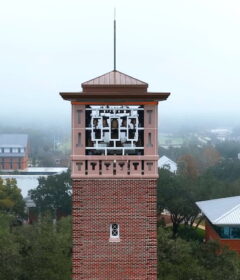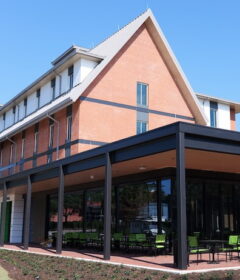Inclusive Education
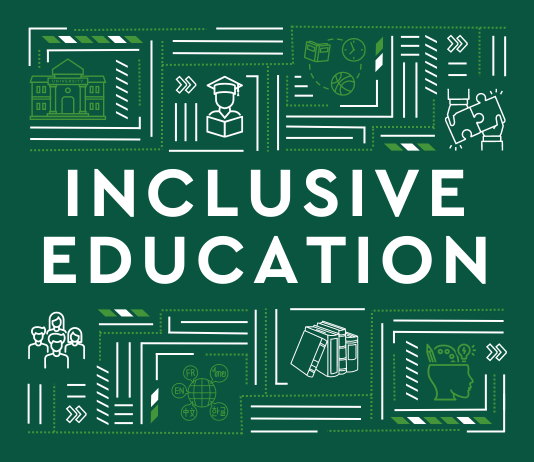
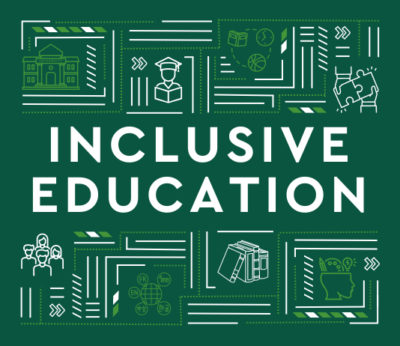
When Education professor Amy Smith, PhD, looks out at her class and begins a lesson, top of mind isn’t what she’s about to teach. Instead, it’s about her students — whether they can see themselves in the material she will teach.
“The dream is that everybody recognizes the students in their classrooms are more important than the content we’re trying to give them. If we can remember that the people come before the content, I would be very happy,” she said.
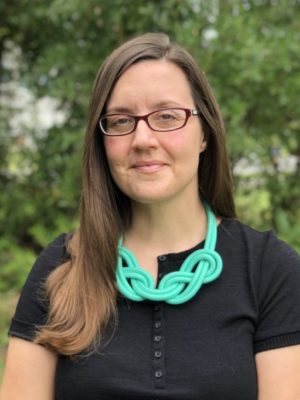
Smith is now working with others to help ensure that happens in classrooms across the DeLand campus in what is labeled in academia as “inclusive pedagogy.”
At Stetson, the concept certainly isn’t new. Yet, by virtue of a pilot program that began on campus in October 2023, the concept, as well as its use in classrooms, has become an official university effort.
During the 2023-2024 academic year, Smith, who specializes in Elementary Mathematics Education; and Meg Young, DBA, an instructor in the School of Business Administration, worked with an initial cohort of eight faculty members to set that inclusive pedagogy into practice.
The goal: to discuss ways that “ensure all members of the classroom community have a sense of belonging, have a sense of voice, have a sense of trust, and they have that community, so they feel safe to learn and explore and expand and develop for who they are meant to become,” Young described.
“We don’t know who these students will become,” she continued. “So, we want to provide them the safest possible environment to do that.”
Smith believes she and Young are serving as conduits for sharing, learning and, ultimately, teaching in learning environments that accommodate students of all backgrounds, learning styles, and physical and cognitive abilities.
“We are connecting with faculty, so they take [new insights and approaches] back to their students,” Smith said.
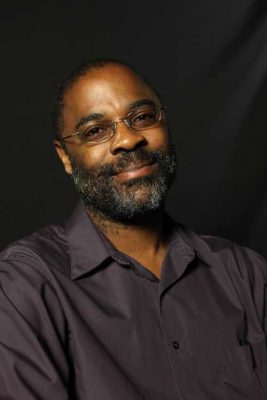
The initiative was established under the direction of Harry Price, PhD, associate professor of Chemistry and faculty director for Stetson’s Brown Center for Faculty Innovation and Excellence. Last year, Smith and Young were named Brown Center faculty fellows for inclusive pedagogy.
Shortly after Smith arrived at Stetson in 2021, she sought out Price in search of ideas to promote inclusive pedagogy. Meanwhile, Young had been involved with the Brown Center since she became a full-time faculty member in 2018. (She started at Stetson as a student-affairs staffer before transitioning to faculty.)
Their work last year began with monthly meetings with faculty, where “we learned from them and they learned from us,” noted Smith.
Today, there are monthly two-hour professional development sessions, with a plan to double to the cohort this academic year.
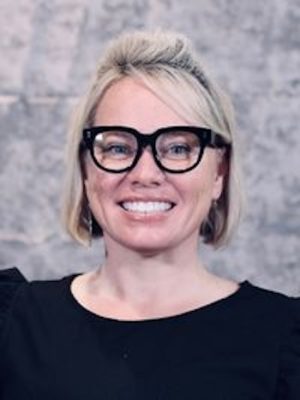
“We’ve been really trying to provide our [faculty] with the richest bank of ideas, because a lot of them simply don’t know where to start, and they get overwhelmed,” Young said. “So, if we can say, ‘Here are five different things you can do, try one,’ and then we build on that.”
Discussion topics, for example, include teaching fundamentals, such as the books being used. “We have looked at all of our books and the supplemental information we’re giving to students, and are those inclusive authors? Do we have different representation there?” Young explained.
Similarly, technology has been addressed, with questions that involve access to all.
Further, faculty members have engaged in self-assessment. “The whole first session with our cohort [last year] was getting to know ourselves and getting to identify who we are through a lens of ethnicity and gender and every different demographic. We looked at who we are first,” said Young.
Eventually, Smith and Young foresee broadening the initiative to also encompass staff members. Their belief is that, with the university moving toward a wholly relationship-rich environment for students, staff members are an integral part of inclusive pedagogy, too.
“I would like to see our cohort grow,” Smith concluded, “and that every member of the cohort begins to act inclusively almost as a second nature.”

